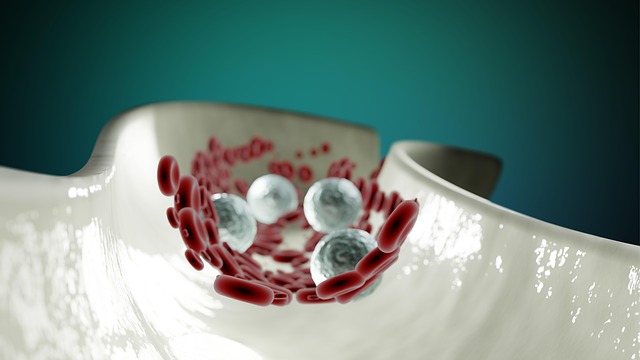Your circulatory system plays a vital role in maintaining overall health, yet it’s often overlooked in discussions about wellness. This complex network of blood vessels and organs is responsible for transporting oxygen, nutrients, and hormones to cells throughout the body, while also removing waste products. To ensure your circulatory system remains in peak condition, embracing a healthy lifestyle and proper nutrition is essential. One of the most effective ways to support your circulatory health is through the inclusion of vitamins in your diet.
Vitamins are organic compounds that are crucial for various biochemical processes in the body. Many vitamins play a direct role in promoting a healthy circulatory system. For instance, vitamin K is vital for proper blood clotting, helping to prevent excessive bleeding. Similarly, vitamin C aids in the maintenance of blood vessel health and supports the immune system, while vitamin E acts as a powerful antioxidant that protects against oxidative stress and enhances blood flow.
Incorporating a variety of fruits and vegetables into your diet can effortlessly boost your vitamin intake and provide numerous benefits for your circulatory system. Citrus fruits, bell peppers, and leafy greens are all excellent sources of vitamin C, while nuts and seeds are packed with vitamin E. Moreover, fermented foods can provide essential vitamin K, promoting a healthy blood clotting process. By diversifying your plate, you’re not just indulging your taste buds, but also fortifying your body.
Healthy nutrition extends beyond vitamins; it encompasses the overall quality of your food choices. Whole grains, lean proteins, and healthy fats are staples of a balanced diet that work in harmony with vitamins to enhance circulation. Foods rich in omega-3 fatty acids, such as salmon and flaxseed, have been shown to reduce inflammation and lower blood pressure, supporting cardiovascular health.
Engaging in regular physical activity is another cornerstone of a healthy lifestyle that directly benefits your circulatory system. Whether it’s walking, swimming, or dancing, incorporating movement into your daily routine can improve blood flow and oxygen delivery throughout the body. Exercise helps strengthen the heart, enables better circulation, and reduces the risks associated with cardiovascular disease.
Stress management plays a significant role in maintaining a healthy circulatory system as well. Chronic stress can lead to high blood pressure, which poses a risk to your heart health. Incorporating mindfulness techniques, such as meditation or yoga, not only calms the mind but can also positively affect your physical health by promoting better circulation and reducing tension in blood vessels.
Hydration is another essential aspect of healthy nutrition that should not be neglected. Drinking adequate amounts of water is crucial for maintaining optimal blood viscosity and circulation. Dehydration can lead to thicker blood, making it harder for your heart to pump and compromising the efficiency of your circulatory system. Make it a habit to sip water throughout the day and consider incorporating hydrating foods like cucumbers and watermelon into your meals.
Remember, taking small, consistent steps toward a healthier lifestyle can lead to significant improvements in your circulatory system and overall well-being. Start by focusing on your nutrient intake, engage in regular physical activity, manage your stress levels, and stay hydrated. By prioritizing both vitamins and holistic health practices, you can create a thriving environment for your heart and circulatory system to flourish.




